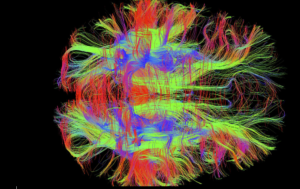In “Exploring Success” …
… we looked at the many meanings of success, both personal and professional, and touched on the sudden, unbidden disturbances that can catapult into our lives, turning us upside down, and disrupting our peace of mind and our physical and mental composure.
 Unexpected Emotional Events
Unexpected Emotional Events
I’d like now to explore two aspects of these unexpected emotional events, the surprises that can leave us reeling with shock that our smoothly successful development seems to have gone into reverse.
The first aspect is the influences from childhood which can cause us to mask our true emotions and express only those we believe to be safe. There is sometimes an expectation from adults that children should have happy sunny dispositions and a life of innocent joy and pleasure, but their parents and loved ones can inadvertently create conditions which frustrate their growth.
One view of child development, based on the theories and philosophy of Carl Jung and Carl Rogers, is that parents can and do place conditions of worth on their children. This means that there is a tacit, or sometimes explicit, condition within the family that certain emotions are acceptable for open expression, but others are unacceptable, and if displayed, may lead to a withdrawal of affection, care or love.
Philip Larkin, (1922 – 1985), the renowned poet, summed up his view of parental contributions to child development in his 1974 poem called “This Be the Verse”:
They f*** you up, your mum and dad.
They may not mean to, but they do.
They fill you with the faults they had
And add some extra, just for you.
In my work with children and young people, I recently encountered a child client who came to me apparently manifesting anger – tantrums, aggression, breaking things at home, and striking out at classmates at school. After several weeks of exploring, through stories, metaphor, watching, and listening, I discovered that a large part of his “anger” was an inauthentic emotion, and that this child was actually deeply sad.
His mother was unable to witness sadness without believing that she must be responsible for the feeling in that person, and her child had absorbed the unacceptability of this emotion in his mother’s model. Noticing that anger was okay, he had substituted inauthentic anger for his true sadness. We worked to give him an inner place where he could be safely sad, and his anger subsided; when it did emerge on occasion, it was as a healthier expression of a controlled and more appropriate emotion which did not overwhelm him. This ability to be safely sad literally transformed not only the child’s life, but had a profound influence for good on his entire family.
Unconditional Positive Regard
Removing “conditions of worth” – the “I’ll only love you if …” terms from children is critical to their successful growth, and can be one of the single most important factors in helping them to grow towards being self-actualising individuals. Experiencing “unconditional positive regard”, to quote Rogers, from a coach, mentor or therapist can start a change process not only in the child, but also in the family system, which has far-reaching beneficial results for all concerned. There are strong indications for successful development in a child who can authentically bear witness to all of their emotions and accept them as valid when they are appropriately expressed. Additionally, learning that it’s alright to be “good enough” and that perfection isn’t really possible or necessary are valuable lessons in self-acceptance.
 At about the same time, I was working with an adult client who was experiencing extreme anxiety and distress because her children were growing up and moving away. Suffering a type of “empty nest syndrome” she would weep frequently, wherever she was, and couldn’t get the thought of her children in danger out of her mind. This greatly affected her health and her relationships, both at home and at work.
At about the same time, I was working with an adult client who was experiencing extreme anxiety and distress because her children were growing up and moving away. Suffering a type of “empty nest syndrome” she would weep frequently, wherever she was, and couldn’t get the thought of her children in danger out of her mind. This greatly affected her health and her relationships, both at home and at work.
Exploration of the underlying feelings revealed that she was suppressing and translating anger, which had not previously been an admissible emotion in her girlhood, nor in her marriage, into anxiety. She was also using distress to mask a fear in herself, of herself – a fear of her own ageing process, which had been brought into sharp focus by the changing roles and perceived loss of status as her children departed and became independent.
Admitting to her fear, using that awareness to gain greater self-worth, to foster self-love, and acknowledging anger as an emotion which was valid for her to express, helped to evaporate the anxiety and distress, and she was able to process her feelings, own them and let them go. She became aware that she could express appropriate anger, overcome fear – and that they were true, authentic feelings that were part of her richness of being, not emotions acceptable to someone else, which had been part of an elaborate masquerade.
Spotting the congruence of an emotional expression, noticing when words don’t seem to match behaviour, is helped by keen observation of a client’s physical demeanour. My young client placed his hands on his heart and was in a low-energy state and posture when he described his anger to me. What I noticed was that it didn’t look, sound or feel like “anger” to me – and by carefully eliciting responses through clean questions, we explored his meaning and he was able to identify that he was really sad. For me, knowledge and experience of Taoism and Reiki Healing, and awareness of energy centres (Chakras) in the human body add an important element to the information gathering which is so crucial to facilitating exploration of the inner space.
Owning Your Space
“Everyone has two natures. One wants us to advance and the other wants to pull us back.
The one that we cultivate and concentrate on decides what we are at the end.”Theron Q. Dumont (1918)
The second aspect of exploring unexpected emotional events relates to owning and valuing everything about ourselves.
 It’s easy to like the likeable – obvious, and natural. It’s harder to embrace the less ideal, darker parts of ourselves. We all have them, though. Exploring what’s known as the “shadow” side is one of the most valuable and beneficial parts of training in therapy, leading not only to self-understanding and self-love, but the ability to be compassionate and empathic with and for clients, and in our other relationships. Successful counsellors and therapists provide a safe space for their clients to explore that which they’d initially rather keep hidden – and I like to use the term “owning up” here.
It’s easy to like the likeable – obvious, and natural. It’s harder to embrace the less ideal, darker parts of ourselves. We all have them, though. Exploring what’s known as the “shadow” side is one of the most valuable and beneficial parts of training in therapy, leading not only to self-understanding and self-love, but the ability to be compassionate and empathic with and for clients, and in our other relationships. Successful counsellors and therapists provide a safe space for their clients to explore that which they’d initially rather keep hidden – and I like to use the term “owning up” here.
As a child, “owning up” to a wrongdoing was the noble things to do, even if the consequences of punishment were undesirable. As adults, owning up to our weaknesses is possibly an even nobler act. Even though there is not the risk of externally administered punishment, (unless that’s what you choose!) we can be pretty good at inflicting forty lashes on ourselves for our perceived shortcomings, and not giving ourselves the option to be human and forgiven.
We are accustomed to pushing down and denying what are considered to be negative emotions, and don’t want to admit that we still get angry, sad, afraid, jealous … whatever the feeling may be. Having the courage to bring out those turbulent emotions that disturb the surface does not threaten our successful development, but enhances and even secures it. Once you bring them out into the light, examine them, learn from them – you tend to find they dissipate and disappear.
You can ask yourself what purpose they serve now, what they may have meant in the past, and if they are redundant, let them go. If they have new and more appropriate meaning, then use them to be a fully expressive, aware and authentic individual, in command of your inner space.
Inner Vision – Your Ultimate Success
Being in command of your inner space is your ultimate success.
It’s the only place where you can have total control, and this allows you to have greater positive influence in your world – in your relationships, your career, your education, your family. The more you can learn about yourself, and the more self-aware you become, the fewer the unexpected disturbances that can surprise you.So take time to be quiet within, develop your inner strengths,
and claim all your emotions as authentically yours.Your childlike qualities of playfulness, imagination, curiosity – they enable you to explore your inner world, that constellation within, and find undreamt of riches. Those riches will multiply with use, and you will find that the inevitable emotional challenges of being and becoming are easier to assimilate and work through.
It’s no great secret, it simply needs some dedicated time –
but the benefits are waiting for those who care to lovingly embrace their inner space, and experience the true meaning of success.
I leave you with the words of Piero Ferrucci, in “What We May Be”:
As the Gods created the universe they discussed where they should hide Truth so that human beings would not find it right away.
They wanted to prolong the adventure of the search.
“Let’s put Truth on top of the highest mountain,” said one of the gods.
“Certainly it will be hard to find there.”
“Let’s put it on the farthest star,” said another.
“Let’s hide it in the darkest and deepest of abysses.”
“Let’s conceal it on the secret side of the moon.”
At the end, the wisest and most ancient god said,
“No, we will hide Truth inside the very heart of human beings.
In this way they will look for it all over the Universe, without being aware of having it inside themselves all the time.”Piero Ferrucci, 1982
You can find “Exploring Success” Here
Dumont Theron Q. (1918) The Power of Concentration Project Gutenberg Etexts December, 1998 [Etext #1570]
Ferrucci, Piero (1982) What We May Be New York: Jeremy Tarcher/Putnam
Larkin, Philip (1974) High Windows London: Faber & Faber and at http://www.certando.net/larkin.html
© Christine Miller
All Rights Reserved

 Unexpected Emotional Events
Unexpected Emotional Events
Leave a Reply